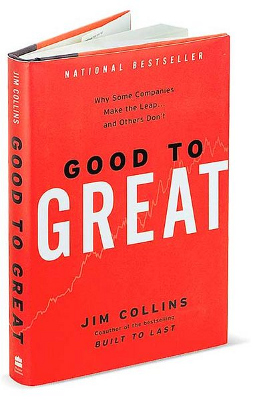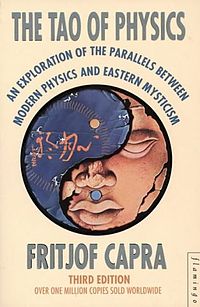Overview
-
Meisam Hejazi Nia is a Doctoral Candidate in Management Science (Marketing Analytics) at the University of Texas at Dallas. His research interest includes studying the digital and online markets and two sided platforms. In particular he is interested in modeling the dynamics of decision making and the diffusion of products on the social networks. To study these marketing phenomena using Big Data, he uses the Machine Learning techniques, Probabilistic Graphical Models, Bayesian econometrics, Structural modeling, State Space Models, Network Analysis, and Empirical Game Theory.
-
Meisam has around 5 years of experience in information systems, telecommunication, banking, and textile industries. He has worked as an information system/technology expert, manager, and B2B product specialist and manager in international companies such as MTN. His work experience focuses on the new product development, promotion, product life cycle management, branding and sales. He has managed the following products: mobile banking USSD, STK, NFC, OTP, Mobile Virtual Private Network (MVPN), Access Point Name (APN), Corporate Ring Back Tone (RBT), Enterprise SMS (ESMS) and Enterprise resource planning (ERP).
-
He has taught courses in marketing of high technology products, and Electronic Commerce (EC) to Information System (IS) Engineering students. He has two master degrees, one in software engineering, and the other in business administration. His MBA is from Sharif University of Technology, the first top university in Iran, and his software engineering master degree is from Amirkabir University of Technology (Polytechnic of Tehran), the second top university in Iran. He also has a bachelor degree in information system/technology engineering and another in software engineering.
- He is interested in Hiking, sitcom Comedy, British Detective Stories, Poetry, Philosophy and Music. He is interested in contributing to communities of open source, open knowledge, and open speech. He cares about freedom, human rights, poverty alleviation, economic empowerment, education, children, family, science, technology, art and culture.
Honors & Awards
-
Honored the 1st rank in the first year PhD exam at University of Texas at Dallas (2013)
-
Honored the 1st rank researcher among software engineering master degree students, Amirkabir University of Technology (2010)
-
Honored 1st rank high honored students amongst more than 20,000 students participating in National Graduate Enternace Examination for MBA program, Sharif University of Technology (2008)
-
Honored 1st rank among infromation technology and software engineering students graduated, Amirkabir University of Technology (2008)
-
Honored Bronz Medal in National Mathematic Olympiad among 200,000 participants, Iran (2002)
-
Honored 1st rank in local ACM programming contest, Ferdowsi University (2004)
Current Research and Scholarly Interests
Meisam Hejazi Nia is Doctoral Candidate in Big Data Analytics in Management Science at university of Texas at Dallas. His research interest includes studying digital and online markets. In particular he is interested in modeling dynamics of decision making and diffusion of innovation in open platforms and app-stores. To study these marketing phenomena, he uses Bayesian econometrics, structural modeling and Kalman Filtering methods.
Conferance Presentations
- Hejazi Nia, M., Ratchford ,B. (2015). Social learning and diffusion over the pervasive products: An empirical study of an app-stores’ big data, Marketing Science Conference, Baltimore.
- Hejazi Nia, M., Ozer ,O. (2015). A decision support system for auction platforms: An empirical study of emotionally rational bidders on eBay’s Big Data, International Industrial Organization Conference, Boston.
- Hejazi Nia, M., (2015). A decision support system for inbound marketers: An empirical use of Latent Dirichlet Allocation topic model to guide info-graphic designers, Summer American Marketing Association Conference, Boston.
- Hejazi Nia, M., Bruce, N. (2014). The Joint diffusion of an open digital platform and its complementary goods: The effects of product ratings and observational learning, Marketing Dynamics Conference, Las Vegas.
- Hejazi Nia, M., Bruce, N. (2014). The Joint diffusion of an open digital platform and its complementary goods: The effects of product ratings and observational learning, Marketing Science Conference, Atlanta.
Working Papers
- The Joint Diffusion of an Open Digital Platform and its Complementary Goods: The Effects of Product Ratings and Observational Learning University of Texas at Dallas
Abstract
Platform-mediated networks are ubiquitous in markets for digital goods such as PC operating systems, web browsers, mobile phones, video games, and search advertising, among others. Here platform owners (e.g., Apple, Google, Mozilla.org) may grant access to platforms, or open platforms (i.e. entrust the control of them) to third-party developers (e.g., content and application developers), who in turn build complementary products upon the platforms. Unlike regular markets, platform-based markets are often multi-sided, where the platforms serve multiple agents such that the participation one agent raises the value of participating for the other(s). For example, a large installed base of Mozilla Firefox users can not only increase the adoption of Firefox browsers, but they can also attract third-party developers, leading to further creation and adoption of complementary items (e.g., add-ons), which then attract more users to Firefox. That is, both direct and indirect network effects are often key features of platform markets, and hence the diffusion of a platform and its complements are interdependent. Moreover, in the case of an open platform, this joint diffusion depends largely on the free contribution of both users and third-party developers, who are the true sources of an open platform’s growth, improvement, and innovation over time. For example, in an open system (e.g., Mozilla.org, Google) with lax central controls, user generated feedback becomes a vital means through which platform owners and users can screen low-value (relevant) complements. Similarly, it is often members of the developer community who freely review and decide whether to accept unto the platform complementary items submitted by their peer developers, in a manner analogous to the self-organized, peer review process in academia. Thus, given the novelty of open innovation (e.g., self-organization and the roles of user content), we extend the Bass Diffusion Model (BDM) to study the joint or interdependent diffusion of an open, digital platform and its complementary items. In our model, we capture this interdependence (i.e., indirect network effects) by allowing the market size of the complement to evolve over time as more users adopt the platform and platform adoption to increase as the more complements are added to the platform. We, then, investigate the roles of user-generated signals such as product ratings, observational learning, and usage levels on platform-complement adoption. We consider, too, features of an open innovation that could affect diffusion. For example, the preferences of developers, the features of the add-ons they create, their choices of open source licenses, and their preferences for different types of compensations are all factors that could influence innovation success. Moreover, the model helps us examine the role of the self-organized process open platform owner use to determine which complements get accepted unto the platform. Finally, we apply our diffusion model to a unique data set of daily downloads over 5 years for the Firefox browser (platform) and 52 of its add-ons (complements). For estimation, we re-cast the resulting 53 BDM differential equations into non-linear, discrete-time, state space forms; and then estimate them using an MCMC approach to the Extended Kalman Filter. Unlike continuous-time filters the procedure used here avoids numerical integration at every time period, and so is more computational efficient, given our lengthy time- series. Results show, for example, that observational learning increases the demand for Firefox add-ons, and add-ons increase the market size of the platform. We find, too, that a slow add-on review process can diminish platform success. Our results should be of interest to academics and members of the open source community.
View details for Presentation in Marketing Science Conferance 2014
View details for Presentation in Marketing Dynamics Conference 2014
Journal Articles
-
Mobile Marketing Communication: Learning from 45 Popular Cases for Campaign Design
International Journal
of mobile marketing (IJMM)
Abstract
The unique characteristics of the mobile channel (e.g., high response rate, availability at anytime and anywhere, relatively low cost) and the technology savvy generation (Generation Z) compel marketers to consider mobile along with other options in the process of the marketing communication mix selection. Moreover, the mobile channel should be considered in an integrated manner along with traditional communication channels and not as a substitute for traditional channels. For facilitation of integrated marketing communication planning, a conceptual framework has been developed to help marketers understand and compare capacities of each communication. This paper also assesses 45 successful mobile marketing communication case studies looking for the rationale behind successful and failed attempts, analyzing each case study based on dimensions of the conceptual framework for evaluation of marketing communication options. We discovered a number of implicit and explicit implications that helped us formulate two decision rules: the first to help marketers decide on whether or not the mobile channel should be selected in the marketing communication mix, and the second is used in determining mobile marketing communication tools (e.g., mobile Web sites, mobile applications, SMS, MMS, etc.) to increase the chances of success based on predetermined communication objectives, kind of appeal (rational vs. emotional), and the company's industry.
View details for ebsco host
-
Commercial Activities Through Mobile Phone Distributed Processing Integrated With Mobile Agents
Journal of Emerging Technologies in Web Intelligence(JETWI)
Abstract
he number of mobile phones is ten times more than the number of PCs today. They are ubiquitous, and provide the same processing power and memory capacity as PCs in early 90s. The mobile platform is a huge opportunity for future commercial transactions, and also many services could be conducted on them. The mainchallenge of this platform that hinders the development of commercial applications over it is heterogeneity in both wireless technology and the underlying hardware and software platform. Although J2ME facilitates developing application over this platform, developing application is still complex. Mobile phones should be equipped with a proper middleware that not only provides flexibility, and optimization, and usability, but also facilitates common modules for conducting commerce over them. By having such a middleware, traditional commercial applications could be redefined for this new platform. On the other hand different surveys conducted on mobile agent issues could not be applied on mobile phones due to their specific characteristics. We analyzed the mobile phone platform based commercial applications requirements together with mobile phone based mobile agents and proposed an architecture style to fill the gap, and excess the development of commercial applications integrated with mobile agents on mobile phones. We also described the existing challenges on mobile phones and the opportunities that mobile agents can provide with this new commercial activity enabled middleware on mobile phones. Different challenges are described. We provide solutions to these challenges in the form of software system including the architecture. By using the underlying society network, we will show how commercial services could be provided. Our architecture is based on mobile phone and the previous work on developing P2P computer supported collaborative work. Our contribution is providing the required mechanism to have mobile commercial applications Integrated with mobile agents on mobile phones. Our approach is a new break through to the new world of ubiquitous commercial services provided by mobile applications and mobile agents on mobile phones.
View details for ebscohost
-
Providing Service Grid Capabilities on Mobile Phones
Abstract
Mobile phones are ubiquitous today; this provides us a huge opportunity to provide services through them. Mobile phones have constraints in their memory capacity and processor, but still they have the same capability of PCs in early 90s. Many investigations have been made on grid services, but we have a lack of investigation on providing service grid functionality on mobile phones. Mobile phone grid concept, uses current infrastructure of grids, and only adds mobile phones, as terminals of processing, or using this current services, nevertheless having all other modules of grid computing on servers. We investigated providing service grid functionalities on mobile phones. In this paper, we will define scenarios that mobile phones could be used as service providers. We see mobile phones as servers not simple terminals. By using the underlying society network, we will show how services could be provided. Our contribution is providing the required mechanism to have mobile phone service grid. Many mechanisms developed previously for service grids are not suitable for unique features of mobile phones. Thus, we developed the required functionality, which is a new break through to the new world of having ubiquitous services on mobile phones.
View details for Research Gate
-
Providing Data Grid Capability Using Society Network on Mobile Phones
Journal of Applied Collaborative Systems
Abstract
Today mobile phones are the most widespread devices in the world. The numbers of mobile phones today are, four times more than the number of PCs. This provides high potentials for providing some capabilities like data grid on mobile phones. Unfortunately, there is no suitable software system to provide this capability on mobile phones; however, we have enough hardware capabilities. All previous proposals called mobile grid only focused on hybrid mechanism, which at most mobile phones could conduct process, but all scheduling activities were still done on server. The hardware enhancement of mobile phones has become steady, and Moor's law is not applied to mobile phones anymore due to the limitation in battery power. In this paper, we focus on data grid capabilities, and try to provide the same functionality for mobile phones. Constraints of mobile phones make them unsuitable to port data grid on them, and we should change many mechanism in order to provide this functionality. We consider the non-functional requirements of mobile phones in our proposed system. We define a new concept society network, which is necessary to overcome other constraints of mobile phones. So far, there were not such a system developed on mobile phone, and our idea is quite new to the field.
View details for research Gate
PhD Consortium Attended
- Marketing Science 2015, Baltimore, Maryland.
- Marketing Science 2014, Georgia, Atlanta.
- University of Houston 2014, Houston, Texas.
Conferances and Workshops Attended
- SICS 2014, Berkeley, Califoria.
- Marketing Science 2014, Georgia, Atlanta.
- Multi-Screening MSI 2014, Dallas, Texas.
- UTD Informs 2014, Dallas, Texas.
- QME 2013, Chicago, Illinoise.
- Columbia-Duke-UCLA Workshop on Quantitative Marketing and Structural Econometrics 2013, Duke University, Durham.
- UTD Informs 2013, Dallas, Texas.
Conferance Papers
- Meisam Hejazinia, Mohammadreza Razazi, “Conducting Distributed M-Commerce Transactions over Mobile Phones”, Proceeding of ICICS 2009, Jordan
- Meisam Hejazinia and Mohammadreza Razazi, “M-Learning System over MANET on Mobile phones”, Proceeding of DEOL 2009, Singapour
- Meisam Hejazinia, Mohammadreza Razzazi, “Applying Computational Economy for Collaborative Processing on Mobile Phones”, Proceeding of IACSIT-AC 2009, Singapour
- Meisam Hejazinia, Mohammadreza Razzazi, “A New Approach for Implementing RMI in Mobile Phone Platforms”, Proceeding IACSIT-AC 2009, Singapour
- Meisam Hejazinia, Mohammadreza Razzazi, “A Novel Architecture for Commercial and Financial transactions over mobile phones”, Proceeding ICACTE 2009, Egypt
- Meisam Hejazinia, Mohammadreza Razzazi, “M-WALLET SYSTEM FOR REDUCING COST OF M-PAYMENT ON MOBILE PHONES”, Proceeding ECDC 2009, Malaysia
- Meisam Hejazinia, Mohammadreza Razzazi, “PROPOSED MIDDLEWARE FOR MOBILE MARKETING AGENTS ON MOBILE PHONES”, Proceeding ECDC 2009, Malaysia
- Meisam Hejazinia, Mohammadreza Razzazi, “Providing Data Grid Capability Using Society Network on Mobile Phones”, Proceeding SoftCom 2009 Workshop, Croatia
- Meisam Hejazinia, Mohammadreza Razzazi, “Providing Service Grid Capabilities on Mobile Phones, Proceeding SoftCom 2009 Workshop, Croatia
- Meisam Hejazinia, Mohammadreza Razzazi, “Providing Mobile Agents To Mobile Phones Platform”, Proceeding Kimas 2009, United States.
Education
- Doctoral Candidate in Big Data Analytics in Management Science, University of Texas at Dallas, Richardson, Texas.
Second Year (2014), Courses include: Econometrics I-III, Statistics, Data Analysis, Bayesian Inference, Bayesian Dynamic Inference, Optimal Control, Game Theory, IO, Pricing, social network, choice, search seminar with Ram Rao, Brian Ratchford, Norris Bruce, Dmitri Kuksov, Ozalp Ozer, Gary Bolton, Suresh Sethi, Ashutash Prasad - MBA, Management and Economics, Graduate School of Management and Economics, Sharif University of Technology, Tehran, Iran.
May 2010, relevant courses involve: marketing, pricing, micro/macro economics, managerial decision making, system dynamics, business development, economics philosophy, corporate finance and financial markets, technology and innovation and business communication. - M.Sc., Distributed Data Engineering, Amirkabir University of Technology (Tehran Polytechnic), Tehran, Iran.
May 2009, with thesis on distributed processing on mobile phones. - B.Sc., Information System Engineering, Amirkabir University of Technology (Tehran Polytechnic), Tehran, Iran.
May 2008. Sample projects involved: online store, financial engineering analysis of ERP project, integration of e-learning with knowledge management system, web server implementations. - B.Sc., Software Engineering, Amirkabir University of Technology (Tehran Polytechnic), Tehran, Iran.
May 2007. Sample projects involved: compiler, academic paper search engine,webservice based action tracking system implementations, also analysis of CRM system, dynamic programming optimization, and algorithm analysis.
Teaching Experiences
- Marketing of High Technology Products
2011, Islamic Azad University of Qazvin, Department of Electronic, Computer, and Information System/Technology Engineering, Qazvin, Iran. - Electronic Commerce
2010-2011, Islamic Azad University of Qazvin, Department of Electronic, Computer, and Information System/Technology Engineering, Qazvin, Iran. - Information Systems and Information Theory
2010-2011, Islamic Azad University of Qazvin, Department of Electronic, Computer, and Information System/Technology Engineering, Qazvin, Iran.
Selected Teaching Assistantship Experiences
- Brand and Product Marketing
2014, for Dr. Norris Bruce, University of Texas at Dallas, Jindal school of Management, Richardson, Texas. - Marketing Management
2013, for Dr. Dmitri Kuksov, University of Texas at Dallas, Jindal school of Management, Richardson, Texas. - Social and Digital Marketing
2012, for Alex Edsel, University of Texas at Dallas, Jindal school of Management, Richardson, Texas.
Work Experiences
-
Marketing, Corporate Solution Manager
MTN, 2011
Summary of Tasks:
Quantitative focused new product management of $10 million worth telecom products including: NFC, OTP, STK mobile banking, APN, MVPN, and ESMS. Produce quantitative report specification, focus group requirement elicitation, life cycle policy optimization, and promotion design. Competed against giant established resource intensive B2C business unit internally, and B2B customers’ outside options externally, and acquired a market share of corporates in banking, auto, education, and administration industries.
-
Marketing, Corporate Product Specialist
MTN, 2010
Summary of Tasks:
Redesign and business launch of Mobile Virtual Private Network (MVPN)
Redesign and launch of USSD mobile banking Product
-
IT Manager and Member of the Baord of Directors
International Textile Complex, Family Business, 2008
Summary of Tasks:
Managed Reengineering business processes for ERP implementation, worth $15 million, IT service management based on ITIL, ERP selection project analysis, RFP preparation. Overcame the managers’ skepticism of ITS quantitative based modern approaches, by following Kotter change management method.
-
IT Specialist and Member of the Baord of Directors
International Textile Complex, Family Business, 2005-2008
Summary of Tasks:
Strategic planning and business process design
ERP selection project feasibility study and vendor selection
RFP preperation
Computer Skills
-
Programming Languages:
Java, Perl, Python, C++
Summary of Experiences
used Java to implement RMI on mobile phones over blutooth
used Java to implement academic paper search engine system
used Java to implement e-learning system that involved word matching game
used and JSP Java to implement a web server and online store
used Java and JSP to implement a web service based action tracking system
used Java and JSP to implement a web service based action tracking system
used Java and JSP to implement a web service based action tracking system
used Perl to scrape data from Amazon, eBay, and Mozilla Firefox
used Python for preprocessing data in a text mining project
used MATLAB for monte carlo simulation, Kalman Filtering, Robust Panel Regression, BLP estimation
used C++ for thread programming, compiler implementation, linux network programming
View details in code section
-
Statistics and Math Packages:
R, Mathematica, SAS
Summary of Experiences
Kalman Filtering in MATLAB on e projects
Text Mining, Clustering, Bayesian Choice Modeling, and Structural Modeling in R on 3 projects
Data Cleaning, choice models, clustering, factor analysis, GLM in SAS on 6 datasets
View details in code section
-
Database Programming:
MySQL, Access, Excel
Summary of Experiences
used MySQL in online store project
used Access for data cleaning
used JDBC to implement wrapper to test database code performance of Oracle, MySQL, SQL Server, Access
used Excell for various data cleaning
View details in code section
-
Data Scraping:
Shell Programming, Xpath, Perl, Python, iMacro
Summary of Experiences
Used XQuery and Perl to collect review data from Amazon and Mozilla Firefox
Used Perl to collect review data from social networks
View details in code section
Personal Resume
Meisam is interested in Hiking, sitcom Comedy, British Detective Stories, Poetry, Philosophy and Music. He is interested in contributing to communities of open source, open knowledge, and open speech. He cares about freedom, human rights, poverty alleviation, economic empowerment, education, children, family, science, technology, art and culture.
Little Known Fact about Me
I always try to be the first version of myself rather than the second version of somebody else.
Community Contributions
- Reviewed, edited and commented on SOP writing of graduate students, who apply abroad
- Taught Electronic Commerce, Fundamental of Information Systems, and High Technology Marketing in University
- Leaded a team of six programmers for ACM programming contest
- Leaded a team of six programmers for robatics soccer simulation
- Contribute as a part of organizing committee to Computer Science and Marketing Conferances
Hobbies
Hiking, British Detective Movies ( Luther), Sitcom Comedy ( Little Britain), Poetry (Rumi), Philosophy (Tao of Physics), Music (Chris de Burgh), community contribution (, Volunteer work )
Favorite Quotes
- The X-Factor of great Leadership is not personality, it's humanity. --Jim Collins
- I hear and I forget. I see and I remember. I do and I understand. --Confucius
- If you don't set goals for yourself, you are doomed to work to achieve the goals of someone else. --Brian Tracy
- The biggest communication problem is we do not listen to understand. We listen to reply. --unknown
- Honesty is a very expensive gift, Don't expect it from cheap people. --Warren Buffet
- Creativity is intelligence having fun. --Albert Einstein
- The idea that some lives matter less is the root of all that is wrong with the world. --Paul Farmer
- Keep Calm and Carry on. --British government in 1939
Causes Meisam Hejazi Nia Cares about:
- Poverty Alleviation
- Human Rights
- Education
- Economic Empowerment
- Children
- Family
- Science and Technology
- Arts and Culture
MATLAB, SAS and R Codes: GPL
- Multinomial Logit in SAS and Mixture Model in Gauss, 2013
- Survival Analysis in SAS, 2013
- Logit and Probit in SAS, 2013
- 2SLS and Factor Analysis in SAS , 2013
- Conjoint Analysis in SAS , 2013
- Bass Diffusion Model
- T-test and Chi Sq test in SAS, 2013
- Simple OLS in SAS, 2011
- Time Series Analysis in R, 2013
- Discriminant Analysis in MATLAB and R, 2013
- Stepwise Regression in MATLAB and R, 2013
- Anova and Bonfroni in MATLAB, 2013
- Cauchy Distribution Simulation in MATLAB, 2013
- Bayesian BLP in MATLAB (not complete), 2013
- Bayesian BLP in MATLAB (not complete), 2013
- Logit, Orinary and Ordered Probit, Tobit, Poisson Regression in R, 2013
- OLS and Panel Robust Regression in MATLAB, 2013
- GMM in MATLAB, 2013
- GMM in R, 2013
- Replication of AER Dynamic Structural Modeling Paper in MATLAB , 2013
- Hessian Calculation in Mathematica for MPEC estimation , 2013
Codes Released Under GPL
- Mobile RMI on blutooth in J2ME, 2010
- Mobile Content Management System Midelt in J2ME
- Opnet Simulation of Apparel Store Servers, 2008
- Simple Compiler with Yaac and Lex, 2008
- Simple Compiler with Yaac and Lex, 2008
- E-learning word switching game, 2007
- Java Wrapper for Oracle, MySQL, SQL Server test, 2007
- Web Service Based Action Tracking System in Java, 2007
- Web Service in Java, 2006
- Personal Web page in PhP, 2006
- Online store in JSP, 2006
- Open GL soccer, 2006
- Network Programming Linux gcc, 2006
- Process Queue gcc linux, 2006
- CRM and e-store portal, 2006
- Rudimentary Scientific Paper Search Engine, 2005
- C# console application samples, 2004
- Some Assembly codes, 2004
- Visual C++ code samples, 2004
- Tree data structure use in C++, 2003
Reports Released under GPL
- Pricing Consulting Services, 2010
- International Negotiation, 2010
- Franchising Contract Analysis, 2010
- Mobile RMI on Bluetooth (Persian), 2009
- Some System Dynamic Analysis with Vansim (Persian), 2009
- SCP Analysis of Internet Industry (Persian), 2009
- Online Advertising Decision using AHP method (Persian), 2008
- 3 sum hard algorithms (Persian), 2008
- RUP Extension for Fault Tolerant Software Analysis and Design (Persian), 2008
- RUP analysis of Mobile CMS (Persian), 2007
- Database security for distributed XML database(Persian), 2007
- Business Intelligence and Data Warehouse(Persian), 2007
- Integrated elearning system and knowledge management system(Persian), 2007
- Data Mining and CRM systems(Persian), 2007
- IT Strategic Planning to implement ERP System(Persian), 2007
- Risk Management in eBanking(Persian), 2007
- CRM and e-Store Systems Analysis (Persian), 2005
- Flash for Fun (Persian), 2005


















